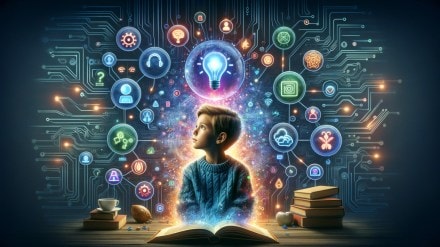Personalized learning is a game-changer in the field of education. It acknowledges that every learner is unique, with distinct interests, strengths, and learning styles. It tailors the educational experience to fit these individual needs. This approach boosts learners as it is based on strengths and interests, rather than relying on a one-size-fits-all model. As technology advances and educational philosophies shift, personalized learning is set to redefine how we approach teaching and learning.
What Are Personalized Learning Pathways?
Before we discuss the impact of personalized learning pathways, let’s define what it involves. It’s a process of customizing education to suit each student’s unique learning style, pace, and interests. Unlike traditional education models that follow a rigid curriculum for all students, personalized learning is dynamic and flexible. It incorporates various teaching methods, resources, and assessment tools to address diverse learning needs.
Key factors of personalized learning include:
- Individual Learning Plans (ILPs): Customized plans that outline a student’s learning goals and strategies.
- Adaptive Learning Technologies: Tools that adjust content and pacing based on a student’s needs.
- Competency-Based Education (CBE): Focuses on students mastering specific skills and concepts at their own pace.
- Student Choice and Voice: Allows students to choose topics and projects that interest them, promoting engagement and motivation.
The Role of Technology
Technology plays a pivotal role in enabling personalized learning pathways. Learning platforms and learning management systems can assess learners’ needs and make suitable adjustments in real-time. This ensures that students are continually challenged without being overwhelmed. D2L® is a prominent provider of educational technology solutions, and its platform, D2L Brightspace, is designed to support personalized learning in several ways. Brightspace offers tools that adapt content and assessments based on student performance, helping deliver a tailored learning experience and addressing individual needs effectively.
Benefits of Personalized Learning Pathways
- Enhanced Student Engagement: By focusing on individual interests and strengths, personalized learning increases student engagement and motivation. When students see the relevance of their education to their personal goals, they are more likely to invest in their learning.
- Improved Learning Outcomes: Personalized learning pathways allow students to progress at their own pace, leading to a deeper understanding of subjects. This approach also addresses learning gaps more effectively.
- Development of Critical Skills: Personalized learning fosters skills such as self-regulation, critical thinking and problem-solving. Students learn to set their own goals, monitor their progress, and take ownership of their learning journey.
- Equity and Inclusivity: Personalized learning can help address educational disparities by providing tailored support to students with diverse needs. It ensures that all students, regardless of their starting point, have the opportunity to succeed.
Challenges
While personalized learning pathways offer significant benefits, they also present challenges such as data privacy and equity concerns. Schools must invest in infrastructure and professional development to effectively integrate these practices–which may not be available in all locations.
The Future of Personalized Learning
As personalized learning pathways continue to evolve, several trends are likely to shape their future:
- Integration of Artificial Intelligence (AI): AI-powered tools will enhance the ability to provide personalized recommendations and interventions. Machine learning algorithms will become increasingly sophisticated in predicting and addressing students’ needs. This will help in identifying learning difficulties at an early age and adapting accordingly.
- Focus on Lifelong Learning: Personalized learning supports lifelong learning and professional development. Tailored learning experiences will become an integral part of career advancement and personal growth.
- Blended Learning Models: The combination of online and face-to-face instruction will provide even more opportunities for personalized learning. Blended models will offer flexibility while maintaining essential in-person interactions. This ensures flexibility in timing and location for the learners.
Conclusion
Personalized learning pathways represent a significant shift in the educational landscape. This shift makes learning more relevant, engaging, and effective. As technology and teaching practices continue to advance, the potential for personalized learning to transform education is immense. Platforms such as Brightspace align well with this vision by offering adaptive learning features, robust analytics, and customizable options to support a more personalized educational experience.
Disclaimer:
This article contains sponsored content that may not reflect the independent opinion or views of FinancialExpress.com. Further, FinancialExpress.com cannot be held responsible for the accuracy of any information presented here. Please consult a certified financial advisor before making any decisions based on this article.
